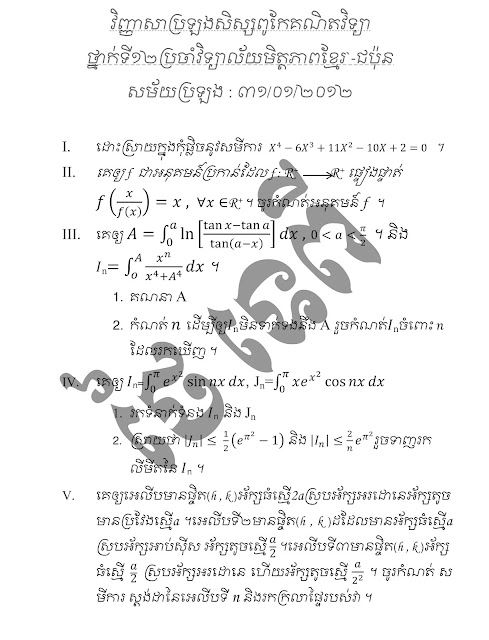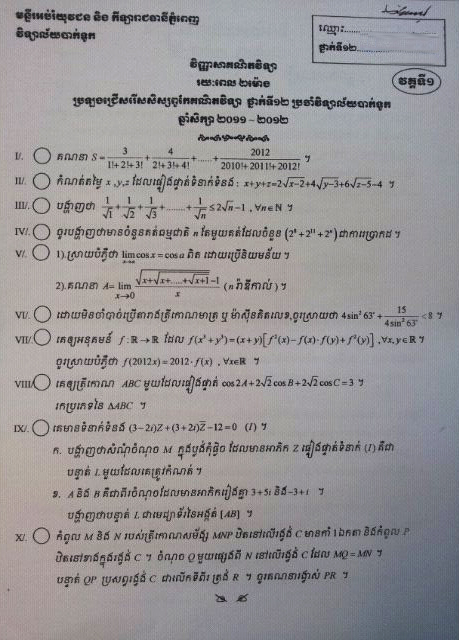Tuesday, February 28, 2012
Income from your blog

GET INCOME FROM YOUR WEBSITE
Turn your valuable blog traffic into profit. Work online and join our free money making affiliate program. We offer the most payment rate to help maximize your income stream.Join our revenue making program absolutely free and 100% risk free.
Sign Up...
Get paid after you stop working
Create many new revenue streams each and every month. Get paid after you not working or even retire at an early age with a powerful revenue stream. Do this one time and get cash over and over again. This is best way to create amazing new levels of profit and prosper on the Internet.A never ending revenue generator
Imagine getting of a something that never failed to provide you with revenue-flow. A earning money program so incredibly profitable that you never had to work for a boss ever again!Start collecting serious affiliate income
This make money program really can give you income on the same day. Start receiving serious partner revenue with almost no effort at all. This is a profitable revenue opportunity, the first step for you to build a solid, trustworthy, long-term profitable business.Tienda de Libros y Negocios Virtuales En Tienda de Libros y Negocios Virtuales, encuentras Libros electronicos en formato pdf desde $1.49. Son de reconocidos escritores y grandes Gurus del Mercadeo de infoproductos.
Monday, February 27, 2012
Friday, February 24, 2012
Thursday, February 23, 2012
Wednesday, February 22, 2012
Tuesday, February 21, 2012
Friday, February 17, 2012
Tuesday, February 14, 2012
Monday, February 13, 2012
Friday, February 10, 2012
How many pages does the book have?
It takes 1629 digits to number the pages of a book. How many pages does the book have?Answer:
-From page #1 to page # 9, there are 9 pages
-From page #10 to page # 99, there are 90 pages. However, since each page number has 2 digits, there are 180 digits from page # 10 to page # 99
-From page #100 to page # 999, there are 900 pages. However, since each page number has 3 digits, there are 2700 digits from page # 100 to page # 999
Since there are 1629 digits, we know so far that number of pages is less than 900
Now, we need to find out how many digits there are for those pages greater than 99 or those pages with 3 digits
Since there are 180+9 = 189 digits for pages with less than 3 digits, we can subtract 189 from 1629 digits to find the number of pages with 3 digits
1629 − 189 = 1440
1440 represents the pages with 3 digits, so number of pages with 3 digits = 1440/3 = 480
Thus, total number of pages = 480 + 90 + 9 = 579 pages
What three questions should you ask?
Of three men one man always tells the truth, one always tells lies, and one answers yes or no randomly. Each man knows which man is who. You may ask three yes/no question to determine who is who. If you ask the same question to more than one person you must count it as question used for each person whom you ask.Answer:
What three questions should you ask?
There are six possible sceanarios:
Truth Lying Random
Guy Guy Guy
----- ----- ------
I A B C
II A C B
III B A C
IV B C A
V C A B
VI C B A
Label the three men A, B, and C and tell each man who is what letter.
- Step 1: Ask A, “ Is B more likely to tell the truth than C?” If yes go to step 2, if no go to step 5.
- Step 2: Ask C, “ Are you the random guy?” If yes go to step 3, if no go to step 4.
- Step 3: Ask C, “ Is A the truth guy?” If yes then scenario IV, if no then scenario II.
- Step 4: Ask C, “ Is A the lying guy?” If yes then scenario V, if no then scenario VI.
- Step 5: Ask B, “ Are you the random guy?” If yes then step 6, if no then step 7.
- Step 6: Ask B, “ Is A the truth guy?” If yes then scenario VI, if no then scenario I.
- Step 7: Ask B, “ Is A the lying guy?” If yes then scenario III, if no then scenario IV.
Location:
Phnom Penh, Cambodia
Thursday, February 9, 2012
How old are they?
Person x and y have the following conversation:
x: I forgot how old your three kids are.
y: The product of their ages is 36.
x: I still don’t know their ages.
y: The sum of their ages is the same as your house number.
x: I still don’t know their ages.
y: The oldest one has red hair.
x: Now I know their ages!
Answer:
From the statement that the product of their ages is 36 the possibilities of the three individual ages are:
1,1,36
1,2,18
1,3,12
1,4,9
1,6,6
2,2,9
2,3,6
3,3,4
From the statement that the sum equals the house number it is possible to eliminate all but two possibilities. The sums of the rest are unique and would allow for an immediate answer. For example if the house number were 16 the ages must be 1, 3, and 12.
The two remaining possibilities are 2, 2, and 9; or 1, 6, and 6.
After the clue that the oldest has red hair you can eliminate 1, 6, and 6 because the oldest two have the same age thus there is no oldest son. The only remaining posibility is 2, 2, and 9.
x: I forgot how old your three kids are.
y: The product of their ages is 36.
x: I still don’t know their ages.
y: The sum of their ages is the same as your house number.
x: I still don’t know their ages.
y: The oldest one has red hair.
x: Now I know their ages!
Answer:
From the statement that the product of their ages is 36 the possibilities of the three individual ages are:
1,1,36
1,2,18
1,3,12
1,4,9
1,6,6
2,2,9
2,3,6
3,3,4
From the statement that the sum equals the house number it is possible to eliminate all but two possibilities. The sums of the rest are unique and would allow for an immediate answer. For example if the house number were 16 the ages must be 1, 3, and 12.
The two remaining possibilities are 2, 2, and 9; or 1, 6, and 6.
After the clue that the oldest has red hair you can eliminate 1, 6, and 6 because the oldest two have the same age thus there is no oldest son. The only remaining posibility is 2, 2, and 9.
Divide $1,000,000
A man has $1,000,000 he wishes to divide up in his will. He wants to give each person named in his will an amount of money, in dollars, which is a power of 7 ($70=$1, $71=$7, $72=$49, $73=$343, …).
He does not want to give more than six people the same amount. How can he divide the money?
Answer:
Lets call a the number of people he leaves $1 to, b the number of people he leaves $7 to, c the number of people he leaves $49 to, etc. The solution equation is thus:
1,000,000 = a + 7b + 49c + 343d + 2401e + 16807f + 117469g + 822283h.
Next divide 1,000,000 by 7. If 1,000,000 is divisible by 7 we could divide the money without giving anyone only $1. However 1,000,000/7 = 142857 plus a remainder of 1. By giving one person $1 (a=1) we now have:
999,999 = 7b + 49c + 343d + 2401e + 16807f + 117469g + 822283h.
Next divide by 7:
142,857 = b + 7c + 49d + 343e + 2401f + 16807g + 117469h.
Dividing 142,857 by 7 we get 20,408 plus a remainder of 1. So let b=1, divide by 7, and we get:
20,408 = c + 7d + 49e + 343f + 2401g + 16807h .
Dividing 20,408 by 7 we get 2,915 plus a remainder of 3. So let c=3, divide by 7, and we get:
2915 = d + 7e + 49f + 343g + 2401h.
Dividing 2915 by 7 we get 416 plus a remainder of 3. So let d=3, divide by 7, and we get:
416 = e + 7f + 49g + 343h.
Dividing 416 by 7 we get 59 plus a remainder of 3. So let e=3, divide by 7, and we get:
59 = f + 7g + 49h.
Dividing 59 by 7 we get 8 plus a remainder of 3. So let f=3, divide by 7, and we get:
8 = g + 7h.
Obviously g=1 and h=1.
He should give:
- 1 person $1
- 1 person $7
- 3 people $49
- 3 people $343
- 3 people $2401
- 3 people $16807
- 1 person $117649
- 1 person $823543.
What is the smallest integer?
What is the smallest integer greater than 0 that can be written entirely with zeros and ones and is evenly divisible by 225?
Answer:
The prime factorization of 225 is 5*5*3*3. So the answer will be both a multiple of 25 and of 9.
All multiples of 25 end in either 00, 25, 50, or 75. The only one of these composed of 0's and 1's is obviously 00, so the answer must end in 00. The hard part is finding a series of 0's and 1's preceeding the 00 that will make the entire number divisible by 9.
If you didn't already know the following trick then this problem would be very hard. If you did know it then the problem was was likely very easy. The trick is that if the sum of digits of a number is divisible by 9 then the number itself is also divisible by 9. Note that this is true for 3 also. For example the number 17685 is divisible by 9 because 1+7+6+8+5=27, and 27 is divisible by 9.
To prove this let's consider any five digit number, abcde. This number can be expressed as follows.
a*10000 + b*1000 + c*100 + d*10 + e =
a*(9999+1) + b*(999+1) + c*(99+1) + d*(9+1) + e*1 =
a*9999 + b*999 + c*99 + d*9 + a + b + c + d + e =
9*(a*1111 + b*111 + c*11 + d*1) + a + b + c + d + e
Thus 9*(a*1111 + b*111 + c*11 + d*1) is a multiple of 9. So if a+b+c+d+e is also a multiple of 9 then the entire number must be a multiple of 9. Note also that the remainder of abcde/9 is the same as the remainder of (a+b+c+d+e)/9
The smallest number consisting of all 1's and divisible by 9 is thus 111,111,111. Adding the two zeros at the end results in the answer to the problem: 11,111,111,100.
Welcome
Welcome to cambomaths on blogspot! and welcome to the blogspot family.
We used to work on WordPress (http://cambomaths.wordpress.com) and now we build our home here too.
Enjoy together!
Cheer!
cambomaths
We used to work on WordPress (http://cambomaths.wordpress.com) and now we build our home here too.
Enjoy together!
Cheer!
cambomaths
Subscribe to:
Posts (Atom)






















